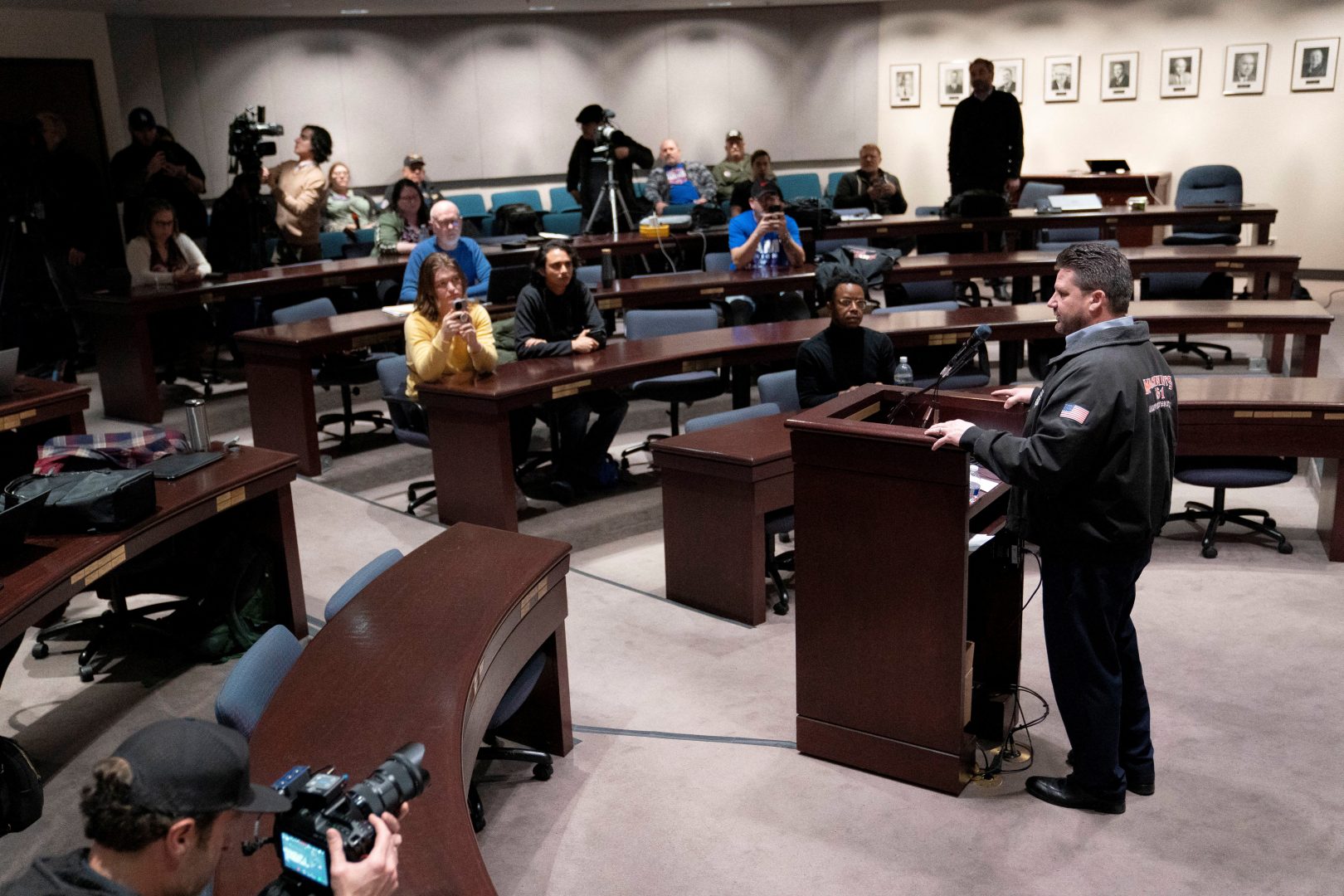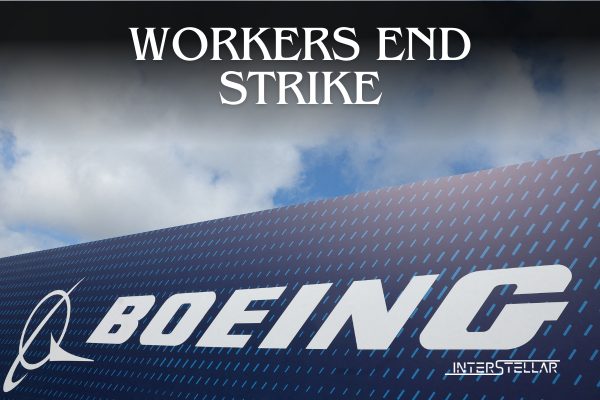Boeing Workers End Strike Accept New Deal, Ending Costliest US Strike in 25 Years
Boeing workers end strike accepting the company’s latest contract offer, officially ending a costly strike that started on September 13. The decision follows a vote by 33,000 members of the International Association of Machinists (IAM), with 59% of union members agreeing to the terms. This historic labour action, which has cost Boeing billions, signals a tentative step forward for both the company and its workforce.

Union Members Approve Boeing’s Third Offer
The union’s acceptance of Boeing’s third offer marks a significant turnaround. Workers had initially rejected Boeing’s first two offers, with 64% voting against the last proposal two weeks ago. The new contract grants an immediate 13% pay raise, followed by 9% increases for each of the next two years and a final 7% raise in the contract’s fourth year. In total, the contract offers a pay increase exceeding 43% over four years. Additionally, workers will receive a $12,000 ratification bonus, some of which can go into their retirement accounts.
While the union achieved substantial gains in wage increases, Boeing refused to reinstate the traditional pension plan that was eliminated in a 2014 labour agreement. The pension issue remains a contentious point for many union members, as union president Jon Holden noted, saying, “They weren’t wrong in feeling the way they did.” Despite the loss of a traditional pension, Boeing agreed to increase its contributions to employees’ 401(k) plans.

Cost of Strike Pressures Boeing to Act
The prolonged strike has severely impacted Boeing’s finances, with Anderson Economic Group estimating the company’s losses at $6.5 billion. This financial pressure, coupled with the $600 million in lost wages for strikers, highlighted the urgency for a resolution. Boeing’s financial health has been shaky since the grounding of its 737 Max following two fatal crashes in 2019 and 2020. The company’s ongoing operational challenges and delayed jet deliveries have affected suppliers, halted revenue streams, and complicated its relationships with airlines.
CEO Kelly Ortberg, who took over just five weeks before the strike, expressed optimism about rebuilding trust with the union. He acknowledged the strain of recent months, stating, “We will only move forward by listening and working together.” Boeing depends on timely deliveries of aircraft to generate revenue, but the strike has frozen deliveries of its 737 Max planes, resulting in additional financial strain.
Economic Impact of Boeing’s Strike
Boeing’s role in the US economy is significant, as the largest American exporter and a crucial employer. The strike’s ripple effects extended to Boeing’s 10,000 suppliers across the United States, causing layoffs and operational disruptions. The Labour Department reported that the strike impacted approximately 44,000 jobs in October, including Boeing employees and those at supplier companies who faced temporary layoffs.
The strike’s effects have also been felt in the airline industry, where delays in new aircraft deliveries have created operational challenges for several carriers. Safety concerns surrounding Boeing’s production processes have also contributed to delays, worsened by incidents like the January plug-door mishap on an Alaska Airlines flight. Investigators found that the plane had been delivered without necessary bolts, highlighting quality control issues that Boeing continues to address.
Moving Forward: Boeing’s New Relationship with IAM
Ending the strike offers Boeing a chance to refocus on stabilising its business and repairing its relationship with the IAM. CEO Ortberg has pledged to “reset” the company’s relationship with the union, signalling a possible shift toward a more collaborative future. Despite the significant challenges ahead, the resolution of this costly labour dispute marks a critical step for both Boeing and its workforce in securing a more stable future.





